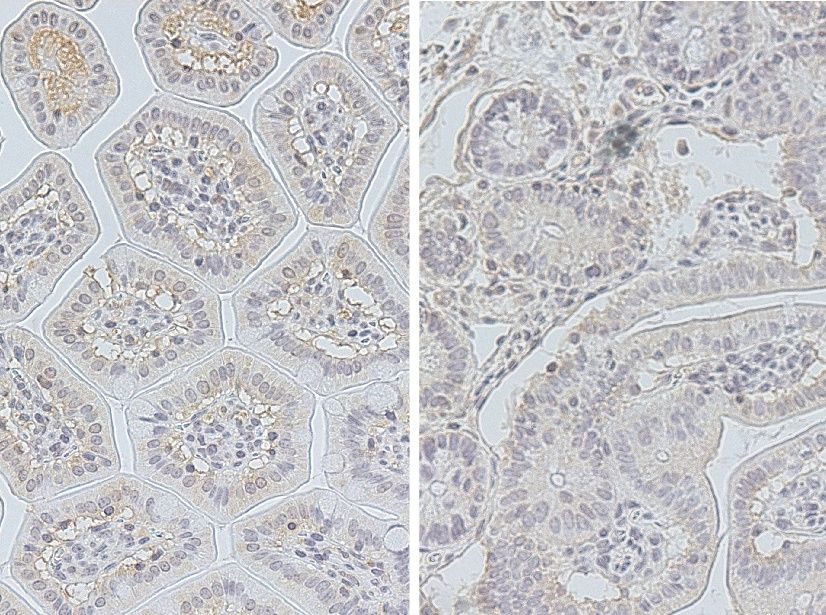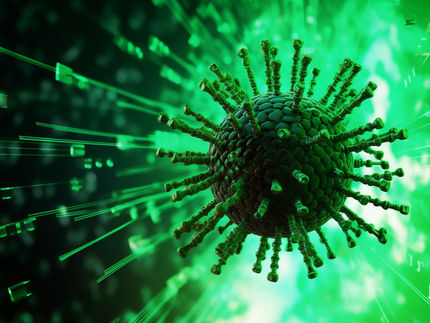GM chickens that don't transmit bird flu developed
Breakthrough could prevent future bird flu epidemics
Chickens genetically modified to prevent them spreading bird flu have been produced by researchers at the Universities of Cambridge and Edinburgh.
The scientists have successfully developed genetically modified (transgenic) chickens that do not transmit avian influenza virus to other chickens with which they are in contact. This genetic modification has the potential to stop bird flu outbreaks spreading within poultry flocks. This would not only protect the health of domestic poultry but could also reduce the risk of bird flu epidemics leading to new flu virus epidemics in the human population. The study, funded by the Biotechnology and Biological Sciences Research Council (BBSRC), is published in Science .
Dr Laurence Tiley, Senior Lecturer in Molecular Virology from the University of Cambridge, Department of Veterinary Medicine, said: "Chickens are potential bridging hosts that can enable new strains of flu to be transmitted to humans. Preventing virus transmission in chickens should reduce the economic impact of the disease and reduce the risk posed to people exposed to the infected birds. The genetic modification we describe is a significant first step along the path to developing chickens that are completely resistant to avian flu. These particular birds are only intended for research purposes, not for consumption."
Professor Helen Sang, from The Roslin Institute at the University of Edinburgh, said, "The results achieved in this study are very encouraging. Using genetic modification to introduce genetic changes that cannot be achieved by animal breeding demonstrates the potential of GM to improve animal welfare in the poultry industry. This work could also form the basis for improving economic and food security in many regions of the world where bird flu is a significant problem."
To produce these chickens, the Cambridge and Edinburgh scientists introduced a new gene that manufactures a small "decoy" molecule that mimics an important control element of the bird flu virus. The replication machinery of the virus is tricked into recognising the decoy molecule instead of the viral genome and this interferes with the replication cycle of the virus.
When the transgenic chickens were infected with avian flu, they became sick but did not transmit the infection on to other chickens kept in the same pen with them. This was the case even if the other chickens were normal (non-transgenic) birds.
Dr Tiley continued, "The decoy mimics an essential part of the flu virus genome that is identical for all strains of influenza A. We expect the decoy to work against all strains of avian influenza and that the virus will find it difficult to evolve to escape the effects of the decoy. This is quite different from conventional flu vaccines, which need to be updated in the face of virus evolution as they tend only to protect against closely matching strains of virus and do not always prevent spread within a flock.
Most read news
Organizations
Other news from the department science

Get the life science industry in your inbox
By submitting this form you agree that LUMITOS AG will send you the newsletter(s) selected above by email. Your data will not be passed on to third parties. Your data will be stored and processed in accordance with our data protection regulations. LUMITOS may contact you by email for the purpose of advertising or market and opinion surveys. You can revoke your consent at any time without giving reasons to LUMITOS AG, Ernst-Augustin-Str. 2, 12489 Berlin, Germany or by e-mail at revoke@lumitos.com with effect for the future. In addition, each email contains a link to unsubscribe from the corresponding newsletter.
Most read news
More news from our other portals
Last viewed contents
Brodmann_area_28
Dihybrid_cross
ProteoNic and Fraunhofer IME sign Research License and start collaboration on protein expression in plants
Beckman Coulter to Acquire Diagnostic Systems Laboratories, Inc. - Company Seeks to Gain Leadership in Specialty Endocrine Testing
QIAGEN completes second U.S. submission for companion diagnostic to guide treatment decisions in colorectal cancer






















































